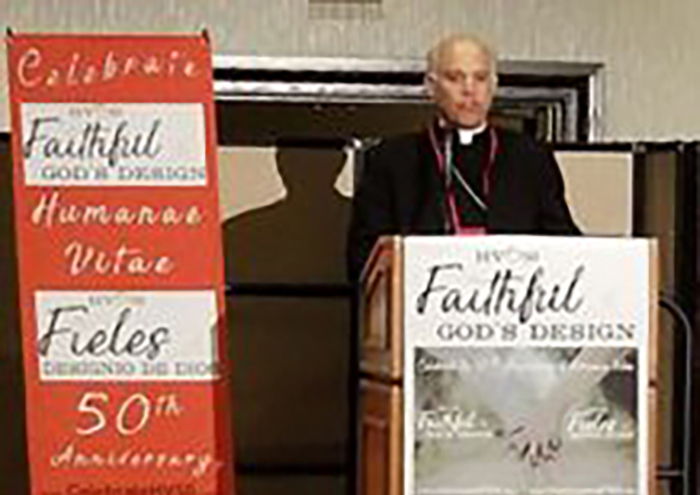The title of my talk is obviously inspired by St. Augustine in his famous line from the Confessions: “Late have I loved you, O Beauty ever ancient, ever new, late have I loved you!” As he was surprised by the truth of the Christian faith in his own time, so are others today who are enlightened by the truth of God’s plan for their happiness. That is why the worst thing we could do, if we truly care about others, is to soften or downplay the hard parts of our faith, those teachings where we encounter the most resistance and even hostility in the culture. How could we do such a thing, if we are convinced that this is true, and for the true good of all people? Rather than excuses for fleeing the cross, what we need are creative new ideas to help people understand the wisdom and beauty of God’s design. First and foremost, that means each one of us living our particular vocation faithfully and well. We lead first by example. We also need to take heart from conferences such as this one, and so many others taking place this year to mark the 50th anniversary of Humanae Vitae. I think we are all feeling some discouragement right now, even alarm, as we witness the Western world drifting away from the light of its Christian heritage and sailing into a new dark age. But this is not the first time this has happened. Throughout history, in times of darkness the Church has always sustained points of light that kept the flame of faith and learning and truth alive. We must, then, never fail to recognize the many points of light around us today, signs of Church revival especially in our own country. As I pointed out in opening this talk, the plethora of conferences such as this one all around the country, and in other parts of the world as well, all throughout this year, should be a source of renewed hope for us; such would not have been conceivable in the immediate aftermath of the publication of Humanae Vitae. And as concerned as we are over the “nones,” the increasingly large numbers of young people with no religious affiliation, we should take heart from the young people who are still with the faith: they know and want the full and true faith, the pure truth of Jesus Christ, hard parts and all. They are a powerful force of revival for our Church, and they give me great hope and strength of spirit.
We are living in a very restless age, an age that reflects St. Augustine’s own experience which he articulates in the famous opening to his Confessions: “You have made us for yourself, O Lord, and our hearts are restless until they rest in you.” But as he learned, that rest is not an inertia; rather, it is a continual yearning, seeking ever deeper communion with the One who created us for happiness with Himself. The only way there, to attain our common human vocation, is to live our particular vocation faithfully and well, picking up our cross every day in the gazillion little and sometimes big ways that fidelity to our vocation demands. It is a timeless truth which calls us to continually die to self, but renews itself over and over again. What was true for St. Augustine is true for every seeker of our ultimate end in life who is open to being surprised by the light of God’s truth.

Archbishop Salvatore J. Cordileone has served as Archbishop of San Francisco since 2012, and on the Executive Board of CANFP since 2009. Archbishop Cordileone has written and spoken extensively in defense of marriage, and the principles of Humanae Vitae, and was featured presenter at the banquet honoring the 40th Anniversary of Humanae Vitae, as well as offering the opening Keynote at the national celebration of the 50th Anniversary of Humanae Vitae in 2018. View the recording of the keynote HERE

